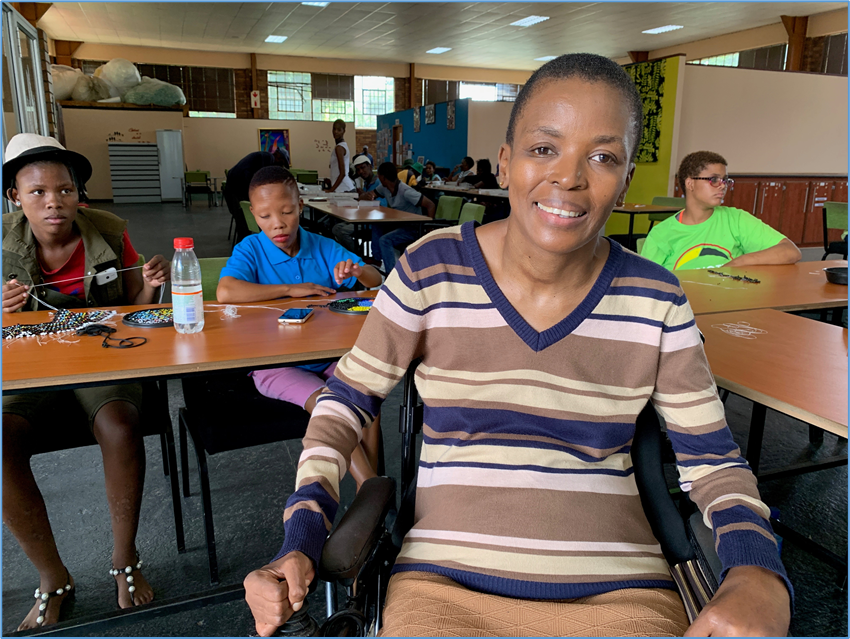In South Africa the percentage of unemployed persons with disabilities are rising and have now exceeded 67%. The Recruitment process included persons with a wide variety of impairments such as blindness, Deaf people, persons with physical, psychosocial, and psychiatric impairments.
Our 30 trainees were placed in our structures as well as with 7 other employers in various South African Towns and a mentor was allocated to each trainee.

The workplace experience adds to the valuable skillset needed to find employment, start your own endeavor, or enter tertiary education. Most experience is in the field project coordination, sales, social media and PR, Arts and Culture, Youth Development, radio, and admin. These are all areas that are needed in the labor market. A definite highlight is the fact that 17 of our 30 students have been placed in full time employment and earning a good income.
As a result of this project, we have signed a contract with SABPP (the South African Board of People Practitioners). They are the board who set standards for best practice in the workplace. We developed an inclusive workplace standard for them to get HR practitioners to subscribe to. We also do monthly webinars with them, where we are speakers on topics such as Disability Equity Training, Impairment Disclosure and Reasonable Accommodation in the workplace, Universal Design and Access, Support Programs, Career Development, Workplace policy, understanding our White Paper on the Rights of Persons with Disabilities regarding the workplace and economic participation of persons with disabilities. We have also signed an agreement with SALGA (the South African Local Government Organization), to provide them with workplace services for inclusion, and recruit candidates with Disabilities for employment. The agreement also involves 5 other areas of inclusion and collaboration. A breakthrough indeed.
South Africa has always been low on the employment and career development of persons with disabilities. Amidst the Covid – 19 Pandemic, the employment of persons with disabilities is an even lower priority in South Africa.
The RI grant has enabled us to prepare our 30 trainees with disabilities for the workplace.
This is of utmost significance:
For everyone who can as a result of this be meaningfully employed
Financial independence for persons with disabilities restores dignity and assists a great deal in prevention of Gender based violence as persons with disabilities does not have to stay in abusive relationships because of dependence of financial resources
The South African Government’s Social security budget saves significantly because when people are employed, they no longer receive Government disability grants
The South African health budget saves money because they no longer must provide a free health service for somebody that is working
Working people becomes taxpayers which is good for the country’s economy
RI supports in reaching the UN Sustainable Development Goals
By this program RI also assists our organization to work towards our organizational Vision:
Current position of trainees:
17 people placed in employment
2 people place in protective workshops
8 people joined our enterprise development programme
3 people are still in our office for further training (Stipends provided by a private company for the 3 trainees for 9 months)

